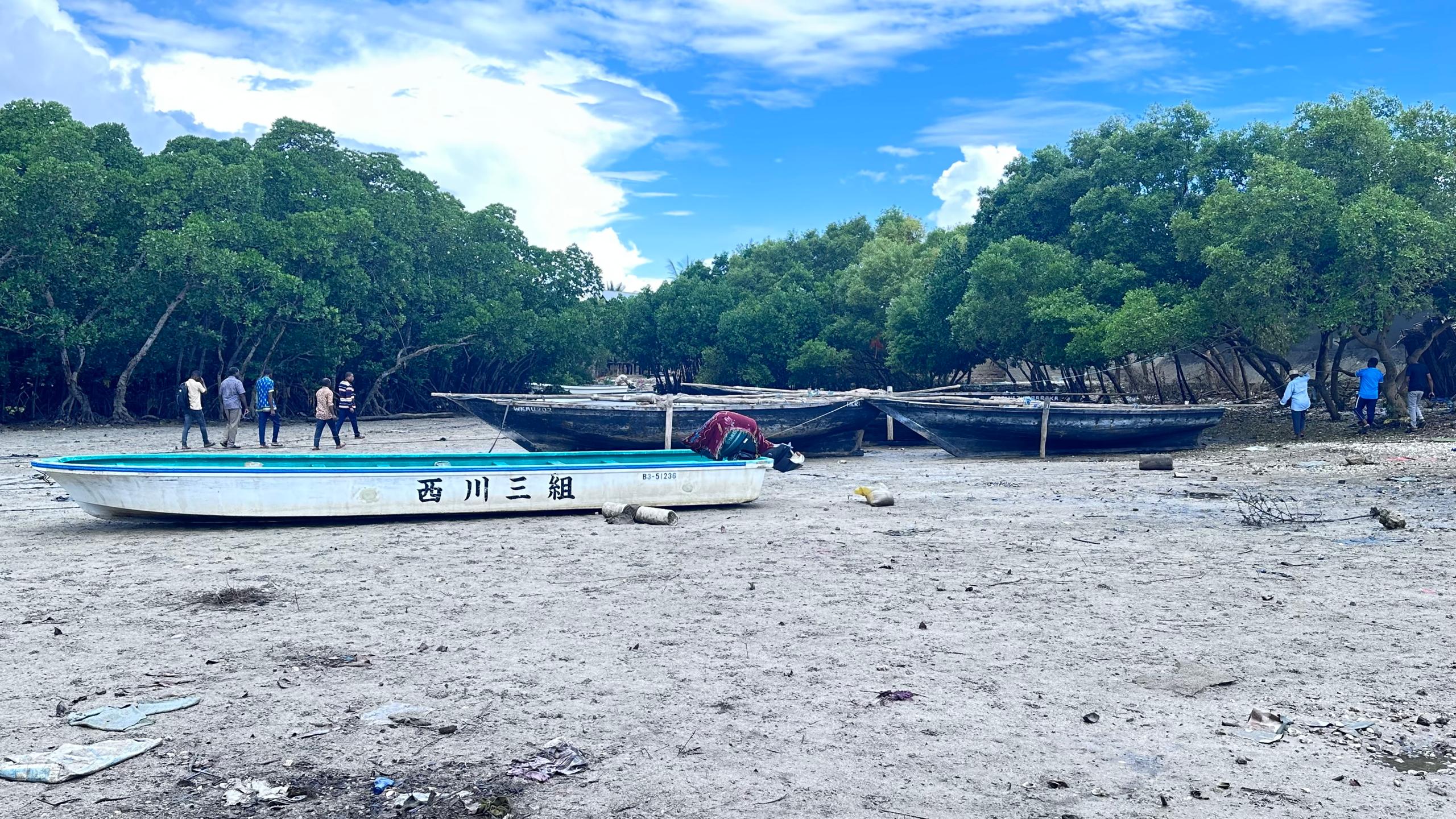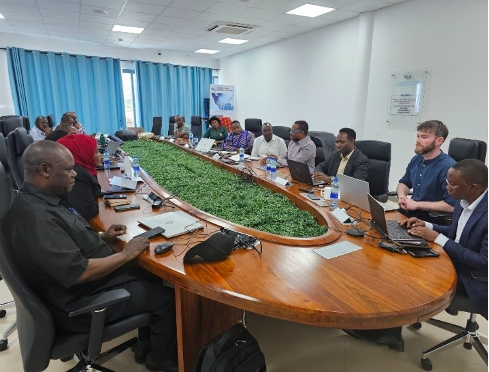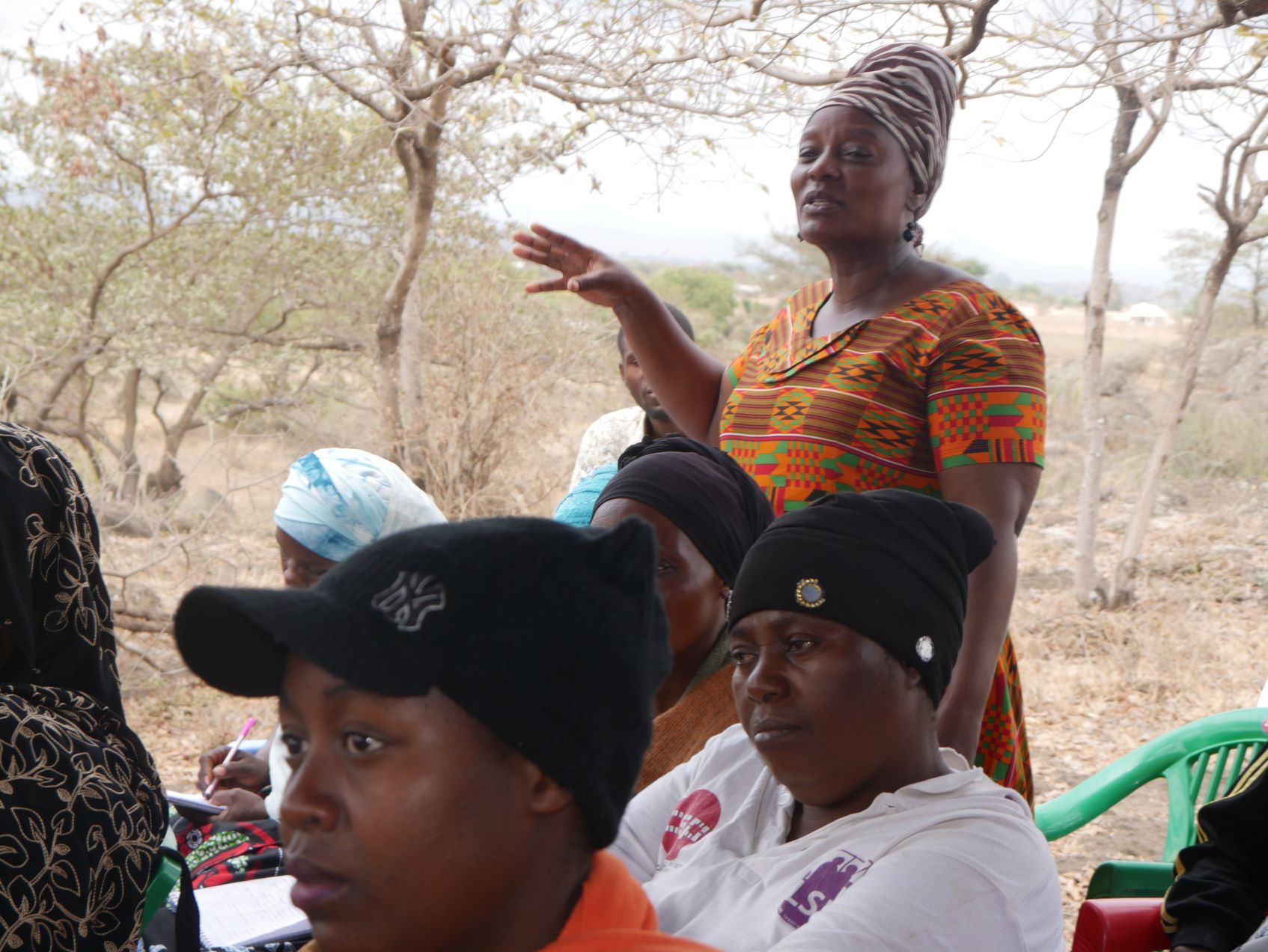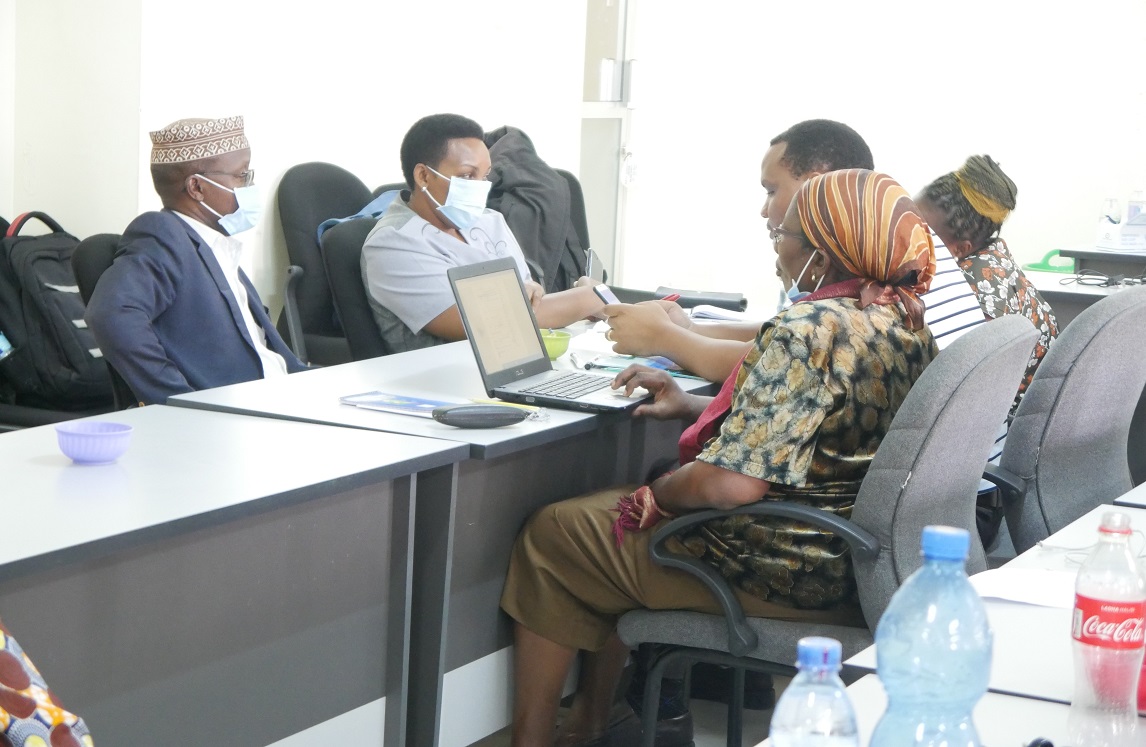Gender Mainstreaming

Strengthening Conservation and Climate Resilience on Tumbatu Island, Zanzibar, Tanzania.
General Introduction:
Tumbatu Island, located within the Tumbatu Marine Conservation Area (TUMCA), is a critical biodiversity hotspot in Zanzibar, Tanzania. Established as a marine protected area (MPA) in 2014, TUMCA spans 162.9 km² and aims to conserve marine ecosystems while promoting sustainable fishing practices. The island boasts diverse habitats, including extensive mangroves, multi-species seagrass beds, coral reefs, and terrestrial forests that support endangered species like green sea turtles and Eastern tree hyrax. These ecosystems provide vital services to local communities, sustaining livelihoods through artisanal fishing, gleaning, and small-scale businesses while offering natural protection against climate hazards such as sea level rise. However, Tumbatu faces significant challenges like overfishing, habitat degradation, mangrove loss, and the impacts of climate change, threatening both biodiversity and community resilience.
This project aims to address these challenges by emphasizing participatory conservation through co-management frameworks such as Local Marine Management Areas (LMMA) led by Shehia Fishers Committees (SFCs). These initiatives aim to balance resource use with biodiversity conservation while empowering local communities to manage their natural resources sustainably. Addressing these requires integrated strategies that combine effective management plans, community engagement, alternative livelihoods development, and climate change adaptation measures to ensure long-term ecological and socio-economic stability for Tumbatu Island. Key stakeholders include the Ministry of Blue Economy and Fisheries and the Department of Marine Conservation, alongside local leadership.

Integrating Gender and Reproductive Health into Climate Change Policies and Strategies in Tanzania
General Introduction:
The climate crisis is a threat multiplier and has already put a strain on Tanzania’s health system by exacerbating existing vulnerabilities to diseases and introducing new diseases globally. Sexual and Reproductive Health are not exceptional, as growing evidence indicates climate change directly and indirectly influences various maternal, reproductive, and child health outcomes and gender inequality. The recent study conducted by Climate Action Network Tanzania in Kilwa District Council has revealed that the changing climate is taking a toll on women’s and children’s health by increasing the prevalence of climate-sensitive diseases such as Malaria, diarrhea which are linked to adverse birth outcomes such as pre-term birth, and other maternal complications. Limited access to health facilities due to paralyzed transportation during floods increased the number of home deliveries and unattended births. High prevalence of anemia and malnutrition among pregnant women and children respectively because of climate-induced food insecurity. Additionally intensified sexual and gender-based violence as a result of household financial instability and resource scarcity. This was further linked to the factors that lead to early marriage and teenage pregnancies.
Despite the clear linkage, reproductive health issues have not been explicitly addressed in country’s climate change policy frameworks. Tanzania is in the process of reviewing the first Health National Adaptation Plan (H-NAP) and developing the third Nationally Determined Contributions. Currently, Tanzania through the Ministry of Health is in the final stages of updating the first Health-National Adaptation Plan. Also, development of the third Nationally Determined Contributions (NDC 3.0) are underway. These national-level documents serve as the main implementation vehicles for both mitigation and adaptation efforts across all climate-sensitive sectors in the country.
The ongoing climate policy developments and reviews present an opportune time for gender and SRH advocacy. CAN TZ will continue to capitalize on existing strong networks with government ministries (Ministry of Health, Vice President Office) to engage in all stages of forthcoming national-level climate policy technical meetings and advocate for the inclusion of sexual and reproductive health dimensions. Additionally, CAN TZ will conduct explorative qualitative research to document how women and young girls navigate the climate crisis particularly in the realms of sexual and reproductive health. The findings from this study will be used to strengthen advocacy efforts and used to inform the ongoing development of H-NAP 2025-2030 and NDC 3.0.

Integrating Sexual and Reproductive Health and Rights into Climate Change policies and Strategies in Tanzania (INSECT)
Climate Change can have serious impacts on Health in Tanzania. Specifically pregnant women can experience high risks and health challenges under climate-induced stress (drought, malnutrition, heat waves etc.). This project will strengthen the sexual and reproductive health and rights (SRHR) for women in Tanzania, to empower them to participate in healthy and self-determined adaptation activities. The project's objective is to strengthen the capacity of the Ministry of Health to co-develop and implement policy and actions that address Health challenges arising from climate impacts. Particularily by supporting the review of the Health National Adaption Plan (HNAP), Climate Action Network Tanzania (CAN TZ) will contribute to establishing and sustaining mechanisms to coordinate health and climate actions. Additionally, the project will enhance implementation and planning for projects around the Nexus of Health and Climate by advocating and supporting a task force to mainstream Health and climate into the health teaching curriculum.
Co-Develop a reviewed Health National Adaption Plan
CAN Tanzania will support the Ministry of Health to review the current Health National Adaptation Plan (HNAP) to include sexual and reproductive health and right (SRHR) issues as a key climate change adaptation intervention area. CAN Tanzania will engage serval key stakeholders (CSOs, experts, MDAs etc.) in the draft and review process. CAN Tanzania will create a form to discuss existing SRHR gaps in the current HNAP and lead the process to include SRHR in the development of new HNAP which is ending in 2023, and take active participation in the development of the new HNAP.
Mainstream the health and climate Nexus into the health teaching curriculum
CAN Tanzania will facilitate initial consultations with the Ministry of Health (MoH), the Ministry of Education, Science, and Technology (MEST), and other important parties as a basis for creating a curriculum for health and climate education. This will involve forming a technical taskforce to facilitate early discussions and planning for the development of a formal teaching curriculum about climate change and SRHR in schools, local communities, and among healthcare professionals. This will create the basic foundation and buy-in from the MEST, MoH, and stakeholders as a required preparation for the subsequent phase of developing the curriculum for climate education in the future. Once developed and adopted by the government, it will be used by all players in the climate and health education space in the country.

Participatory NDCs for a climate-just response in a COVID-19 world
The submission of revised national climate plans (NDCs) under the Paris Agreement is an important milestone in 2020 in order to further close the large gap between the climate targets and the previous requirements of the governments. Due to COVID-19 situation, conditions for an active CSO engagement are very difficult due to the unlimited attention to COVID-19 and the partial Little attention to climate policy, government restrictions on travels and gatherings, etc.. Awareness of cumulative effects and various solutions for both climate change and COVID-19 among decision-makers in project countries is very low due to the strong COVID emergency approach. Tanzania like many project countries treat climate measures during the COVID19 recovery phase as secondary and see these two as completely decoupled. The project addresses this situation with a focus on the voice and the contributions of civil society organizations in the project countries, especially in Bangladesh, Tanzania and Uganda, for participatory and gender-equitable improved NDCs in the context of the COVID-19 recovery are taken into account when creating the NDC.
Tanzania submitted its first Intended Nationally Determined Contribution to the UNFCCC by 2015. Since 2015, the URT has been revising and updating the NDC and implementation plan to ensure they are ambitious and realistic commitments. The process has been slow that expected due to limited available resources and the arising challenges like COVID-19 which have been changing the wave of focus of the government. Currently the review process of the Tanzania NDC is complete, and the NDC has been submitted to the ministerial cabinet for approval to be submitted to the UNFCCC and effective commencement of the implementation.
Through this project, the second review of the draft NDC was conducted to address the key issues of gender, WASH and blue economy which were missing. This also provided an opportunity for enhancement of CSOs in the technical session of revising the NDC and implementation plan that ensured practical ambitions on both adaptation and mitigation, expected to strengthen monitoring, reporting, engagement, ownership and build country resilience to the impacts of climate change and equally contribute to the global effort of reducing GHGs emission.
